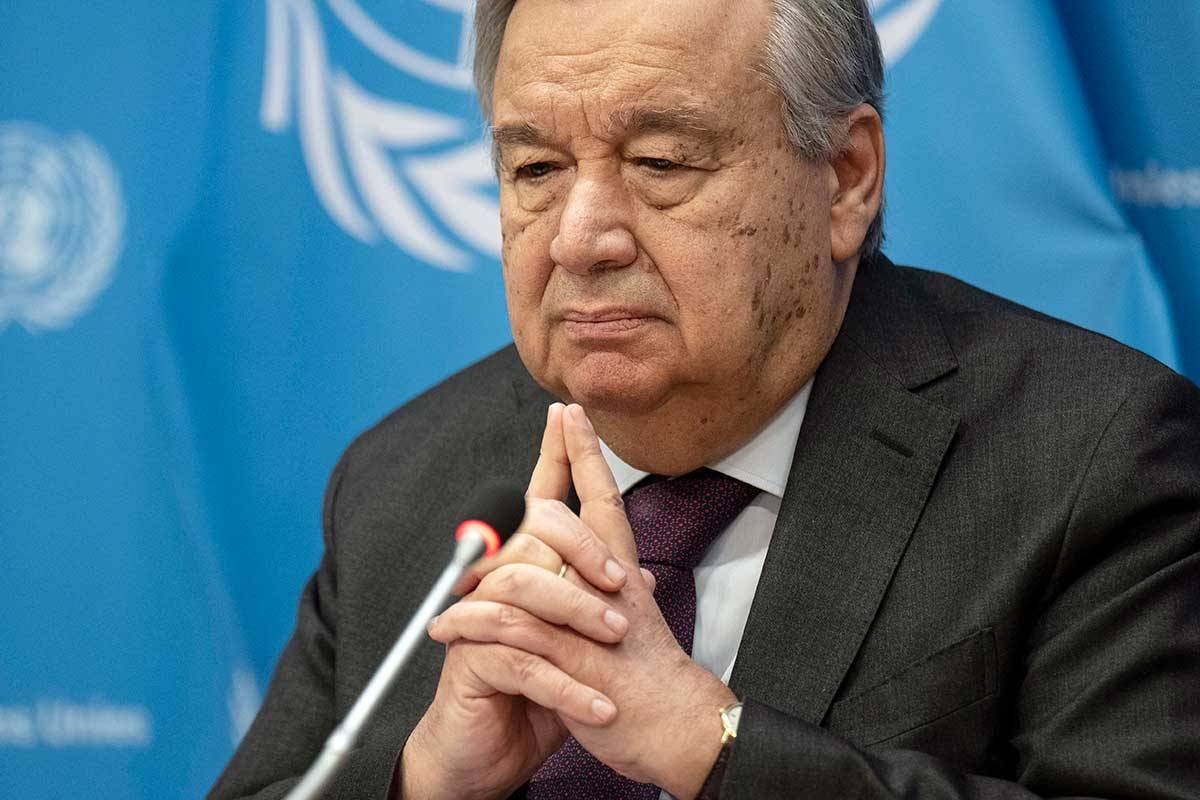The United Nations chief, Secretary-General Antonio Guterres, issued a stark warning on Tuesday, highlighting the increasing threats to global peace posed by climate chaos and food crises. Speaking at a high-level UN meeting, Guterres emphasized that climate disasters are endangering food production, leading to empty bellies and fueling unrest.
Guterres urged the UN Security Council to address the impact of food shortages and rising temperatures on international peace and security. He stressed that climate change and conflict are the two main drivers of the global food crisis. In areas affected by war, hunger prevails due to the displacement of people, destruction of agriculture, damage to infrastructure, and deliberate policies of denial.
The secretary-general drew attention to the devastating relationship between hunger and conflict, citing examples from around the world. In war-torn Gaza, the situation is dire, with 80 percent of the 700,000 hungriest people globally residing in the tiny strip. In Syria, after more than a decade of war, 13 million Syrians go to bed hungry every night. Myanmar has also experienced a reversal in its prospects of ending hunger due to conflict and instability.
Simon Stiell, the United Nations climate chief, echoed Guterres’ concerns, emphasizing that climate change contributes to food insecurity and conflict. He highlighted that one in ten people on the planet already suffers from chronic hunger, and if climate change accelerates, the situation will worsen. Urgent and sustained action is needed to cut greenhouse gas emissions and increase resilience to prevent these issues from spiraling out of control.
The executive secretary of the UN Framework Convention on Climate Change called on the Security Council to acknowledge that more can be done to address the issue. Merely hoping the problem will go away is not a viable solution. He emphasized the need for regular updates on climate security risks from the UN’s most powerful body.
Beth Bechdol, deputy director of the UN Food and Agriculture Organization, emphasized the clear scientific evidence that climate change is compromising food security. Its impacts pose a growing threat to international peace and security.
It is essential for the international community to recognize the severity of the situation and take immediate action. Climate change and food crises are not isolated issues but interconnected challenges that require a comprehensive and coordinated response.
Addressing climate change and its impact on food security is not only a matter of environmental concern but also a critical component of global peace and stability. By mitigating climate change and ensuring food security, we can alleviate the suffering of millions of people and prevent conflicts driven by hunger and scarcity.
The international community, including the UN Security Council, must prioritize climate security risks and work towards sustainable solutions. This includes reducing greenhouse gas emissions, promoting renewable energy, enhancing agricultural practices, and supporting vulnerable communities in adapting to the changing climate.
By addressing the root causes of climate change and food crises, we can create a more peaceful and secure world for present and future generations. The time for action is now, and the international community must come together to tackle these pressing challenges head-on.







